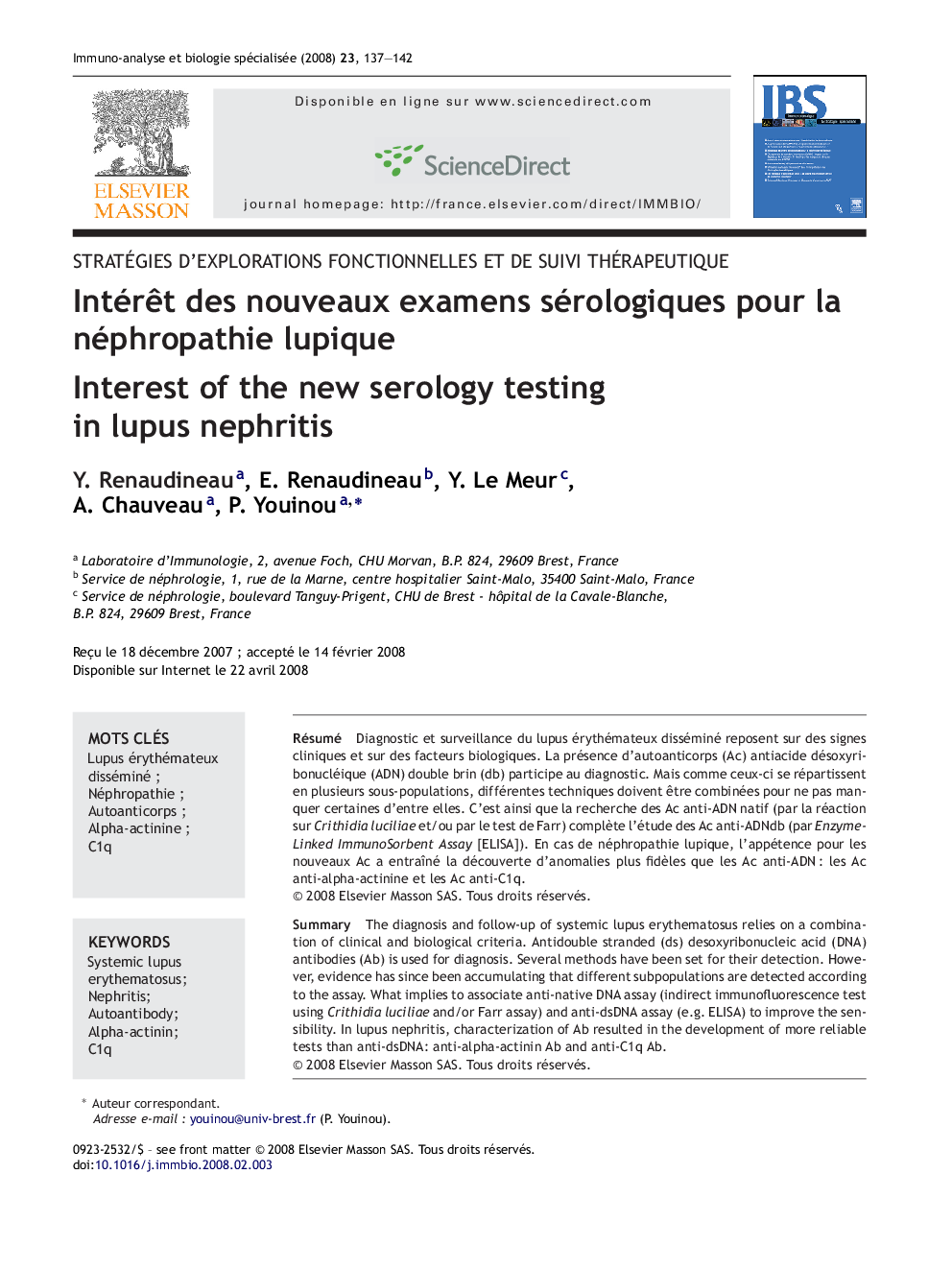| Article ID | Journal | Published Year | Pages | File Type |
|---|---|---|---|---|
| 8471765 | Immuno-analyse & Biologie Spécialisée | 2008 | 6 Pages |
Abstract
The diagnosis and follow-up of systemic lupus erythematosus relies on a combination of clinical and biological criteria. Antidouble stranded (ds) desoxyribonucleic acid (DNA) antibodies (Ab) is used for diagnosis. Several methods have been set for their detection. However, evidence has since been accumulating that different subpopulations are detected according to the assay. What implies to associate anti-native DNA assay (indirect immunofluorescence test using Crithidia luciliae and/or Farr assay) and anti-dsDNA assay (e.g. ELISA) to improve the sensibility. In lupus nephritis, characterization of Ab resulted in the development of more reliable tests than anti-dsDNA: anti-alpha-actinin Ab and anti-C1q Ab.
Related Topics
Life Sciences
Biochemistry, Genetics and Molecular Biology
Cell Biology
Authors
Y. Renaudineau, E. Renaudineau, Y. Le Meur, A. Chauveau, P. Youinou,
